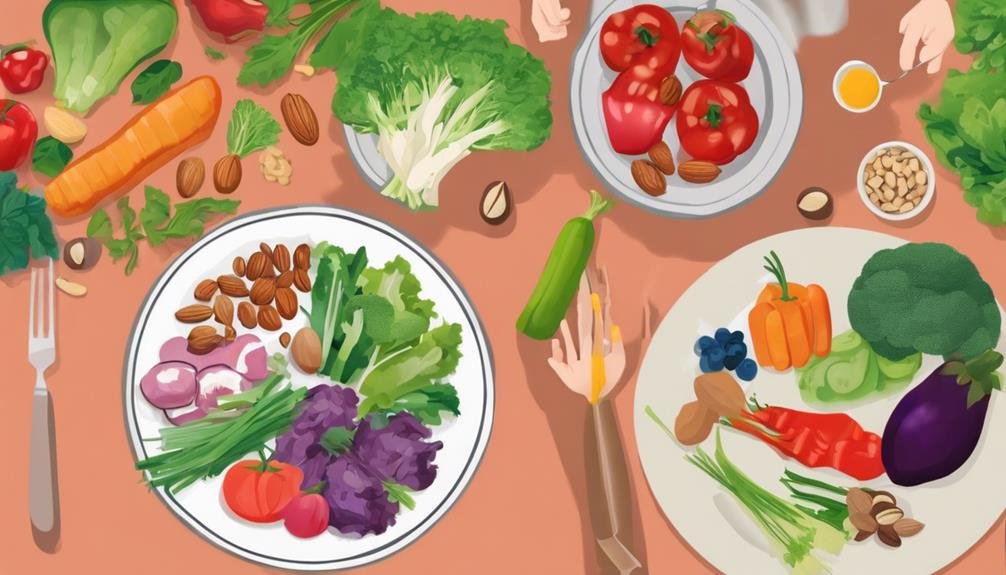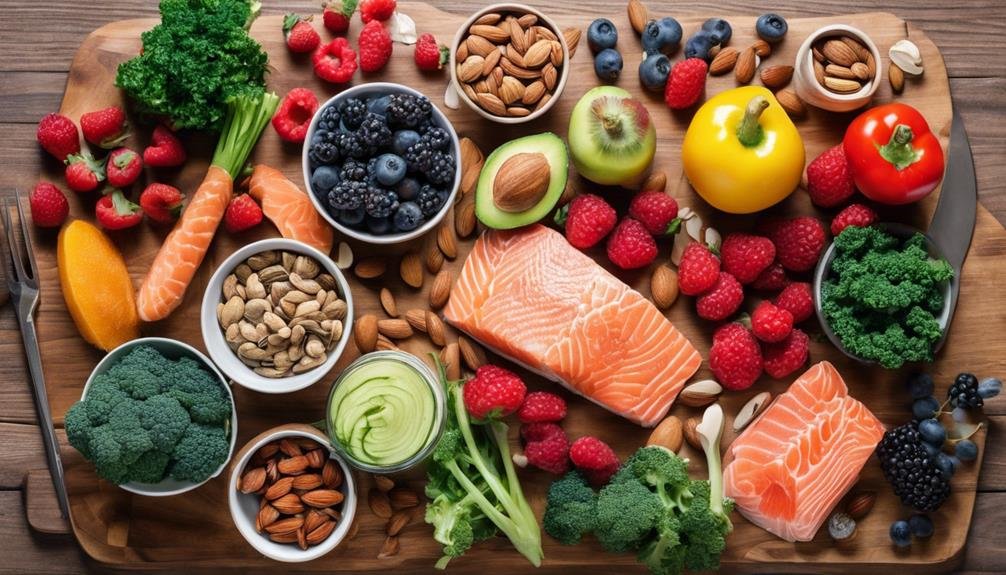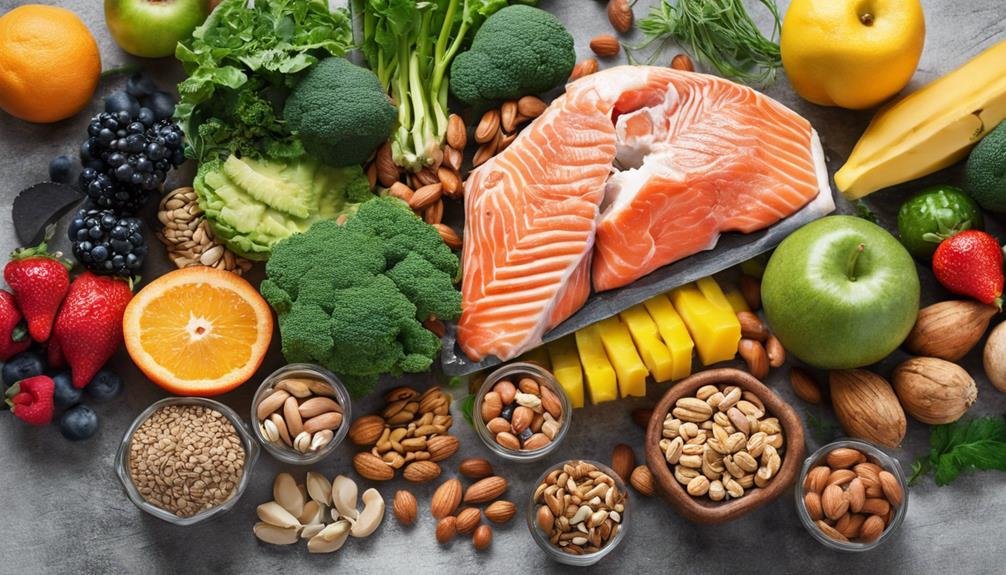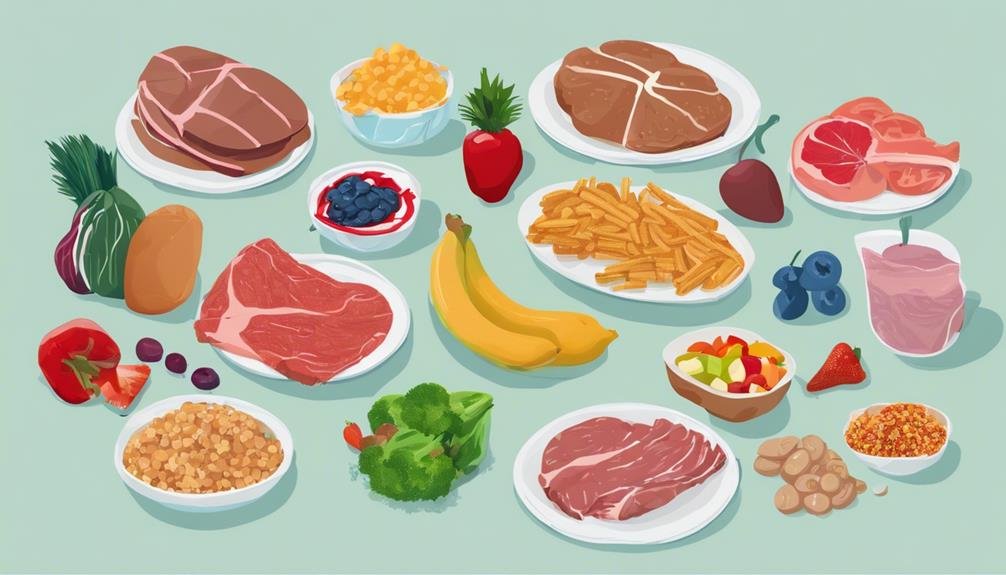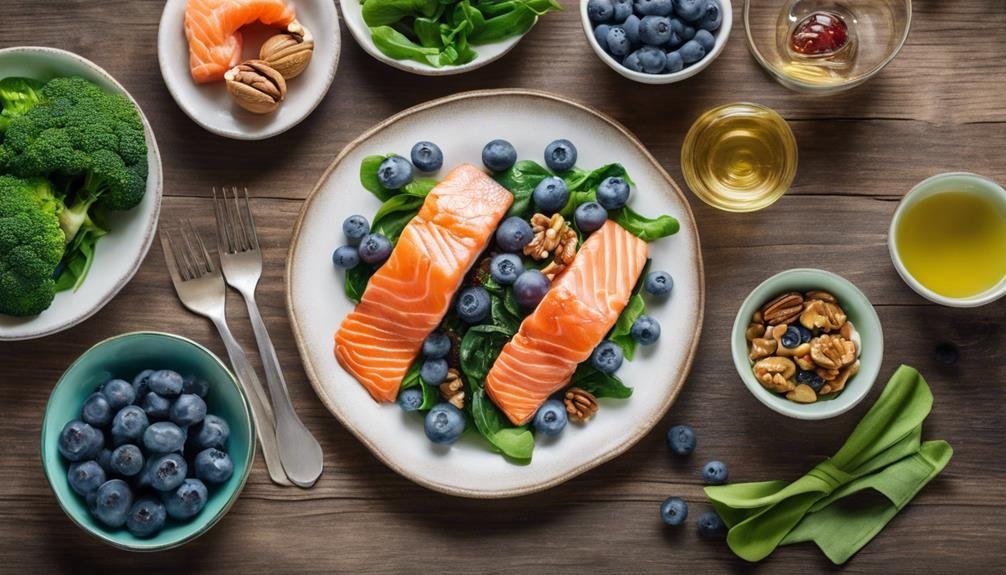As a cancer patient considering the Paleo diet, navigating the realm of dietary choices can be akin to embarking on a voyage through uncharted waters. Understanding the potential benefits and challenges that come with embracing a Paleo lifestyle is crucial for your well-being during treatment. Before you set sail on this nutritional journey, there are essential aspects to consider that can impact your cancer treatment and overall health. By exploring the nuances of how the Paleo diet intersects with your specific needs, you can empower yourself to make informed decisions that support your journey towards wellness.
Benefits of Paleo for Cancer Patients
For cancer patients, adopting a Paleo diet can offer numerous benefits that may support their overall health and well-being during treatment. The Paleo diet focuses on whole foods that are rich in nutrients, such as lean proteins, fruits, vegetables, nuts, and seeds. By avoiding processed foods, sugars, and grains, you can help reduce inflammation in your body, which is crucial for cancer patients undergoing treatment.
Additionally, the Paleo diet promotes stable blood sugar levels, which can be beneficial for managing energy levels and reducing fatigue often experienced during cancer treatment.
The emphasis on nutrient-dense foods in the Paleo diet can also support your immune system, helping your body fight off infections and illnesses more effectively.
Furthermore, the Paleo diet encourages hydration through the consumption of water-rich fruits and vegetables, which is essential for cancer patients to stay properly hydrated during treatment.
Nutrient-Dense Food Choices
As a cancer patient looking to optimize your nutrition during treatment, focusing on nutrient-dense food choices can play a vital role in supporting your overall health and well-being. When considering your diet, keep in mind the following nutrient-dense options:
- Leafy Greens: Incorporating dark, leafy greens like spinach, kale, and Swiss chard can provide essential vitamins and minerals such as folate and calcium.
- Colorful Vegetables: Include a variety of colorful vegetables like bell peppers, carrots, and beets to benefit from a range of antioxidants and phytonutrients.
- Lean Proteins: Opt for lean protein sources like chicken, turkey, and fish to support muscle maintenance and overall strength during your cancer treatment.
- Healthy Fats: Include sources of healthy fats such as avocados, nuts, and olive oil to provide energy and support nutrient absorption.
Potential Challenges to Consider

Navigating a cancer diagnosis can present various challenges, especially when it comes to maintaining a nutrient-dense diet that supports your overall health and well-being during treatment. When considering a paleo diet, there are a few potential challenges to keep in mind.
Firstly, transitioning to a paleo diet may require significant changes to your current eating habits, which can be daunting during an already stressful time.
Additionally, sourcing high-quality, organic, and grass-fed ingredients, which are often recommended in the paleo diet, might be more costly and less accessible for some individuals.
Another challenge could be the restrictive nature of the paleo diet, which eliminates food groups like dairy, grains, and legumes that can provide essential nutrients.
It's important to work closely with a healthcare provider or a nutritionist to ensure you're meeting your nutritional needs while following a paleo diet. Remember, it's crucial to prioritize your health and well-being above all else during this challenging time.
Impact on Cancer Treatment
Transitioning to a paleo diet while undergoing cancer treatment can have a significant impact on your overall well-being and response to therapy. When considering the impact of a paleo diet on cancer treatment, it's essential to understand the following:
- Nutrient-Dense Foods: Paleo diet emphasizes whole foods rich in nutrients that can support your immune system during treatment.
- Reduced Inflammation: By cutting out processed foods and sugars, a paleo diet may help reduce inflammation in your body, which is beneficial for cancer patients.
- Improved Energy Levels: Eating a paleo diet can provide steady energy levels, aiding in managing the fatigue often associated with cancer treatments.
- Enhanced Digestive Health: The focus on fruits, vegetables, and healthy fats in a paleo diet can promote better digestion, crucial for optimal nutrient absorption during therapy.
Considering these factors, incorporating a paleo diet into your cancer treatment plan could potentially offer benefits that support your journey towards recovery.
Managing Side Effects

When managing the side effects of cancer treatment, adopting a paleo diet can play a pivotal role in alleviating symptoms and promoting overall well-being.
The paleo diet, rich in whole foods like fruits, vegetables, lean meats, nuts, and seeds, can help combat common side effects such as fatigue, nausea, and weight loss. By focusing on nutrient-dense foods, you provide your body with essential vitamins and minerals that support your immune system and aid in recovery.
Additionally, the paleo diet's emphasis on anti-inflammatory foods may help reduce inflammation caused by cancer treatments, easing discomfort and enhancing your quality of life.
Remember to stay well-hydrated and incorporate foods with natural anti-nausea properties like ginger and peppermint to manage treatment-related nausea.
Consult with a healthcare provider before making any significant dietary changes, as they can provide personalized guidance tailored to your unique needs and treatment plan. By working together with your healthcare team and adopting a paleo diet, you can better manage side effects and support your overall health during cancer treatment.
Consultation With Healthcare Provider
Amidst the complexities of cancer treatment, engaging in a dialogue with your healthcare provider regarding the potential benefits of a paleo diet can offer valuable insights and personalized recommendations tailored to your specific health needs.
- Importance of Professional Guidance: Your healthcare provider can assess your individual health status and advise on whether a paleo diet aligns with your treatment plan.
- Monitoring Progress: Regular consultations can help track how your body responds to the dietary changes and make necessary adjustments.
- Addressing Concerns: You can openly discuss any worries or uncertainties about integrating a paleo diet into your cancer care regimen.
- Collaborative Decision-Making: Working together with your healthcare team fosters a supportive environment for making informed choices that complement your overall treatment.
Potential Nutrient Deficiencies
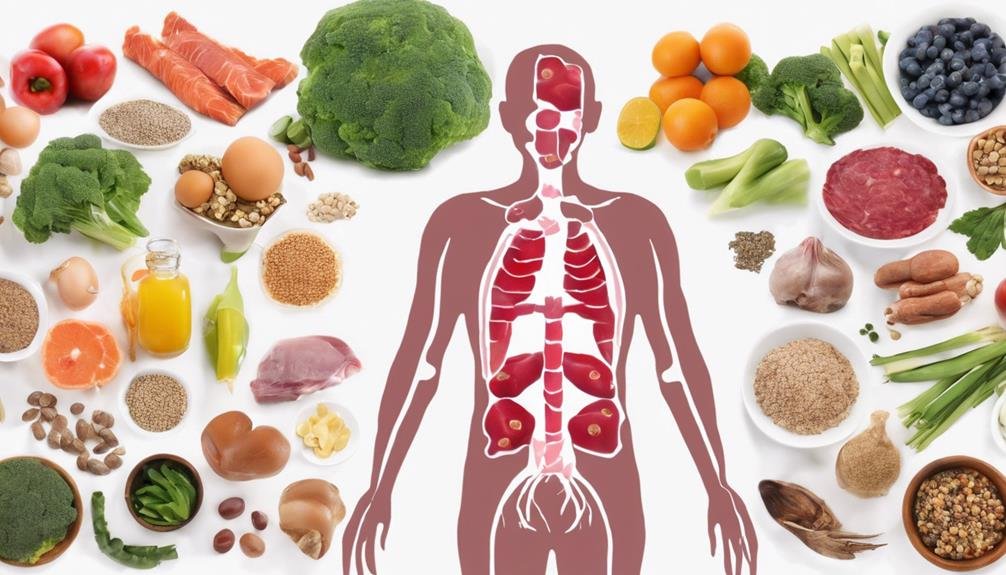
Moving forward from discussions about consulting your healthcare provider, it's important to consider the potential nutrient deficiencies that can arise when following a paleo diet during cancer treatment.
While the paleo diet encourages whole foods like fruits, vegetables, and lean proteins, it may lack certain nutrients crucial for cancer patients. One concern is the limited intake of dairy, which could lead to calcium and vitamin D deficiencies. These nutrients are vital for bone health, especially during cancer treatments that may weaken bones.
Additionally, the exclusion of grains may result in lower fiber intake, impacting digestive health, which is already sensitive during cancer therapy. To combat potential deficiencies, consider incorporating dairy alternatives like fortified plant-based milks or supplements.
Including a variety of non-starchy vegetables and fruits can also help boost essential nutrient intake. Consulting with a registered dietitian can provide personalized guidance on how to address these potential nutrient gaps while following a paleo diet during cancer treatment.
Importance of Hydration
Hydration plays a crucial role in supporting your overall health, especially as you navigate through cancer treatment. Staying adequately hydrated can help manage side effects, support your immune system, and aid in the body's natural detoxification processes. Here's why staying hydrated is essential:
- Combatting Fatigue: Proper hydration can help combat the fatigue commonly experienced during cancer treatment.
- Regulating Body Temperature: Adequate fluid intake helps regulate body temperature, especially important during treatments that can cause fluctuations.
- Supporting Digestive Health: Hydration is crucial for maintaining healthy digestion, which can be disrupted by cancer therapies.
- Detoxification: Water is essential for flushing out toxins from the body, supporting your liver and kidneys in their detoxification functions.
Remember to listen to your body's signals for thirst and aim to consume water consistently throughout the day to support your overall well-being during this challenging time.
Balancing Macronutrients
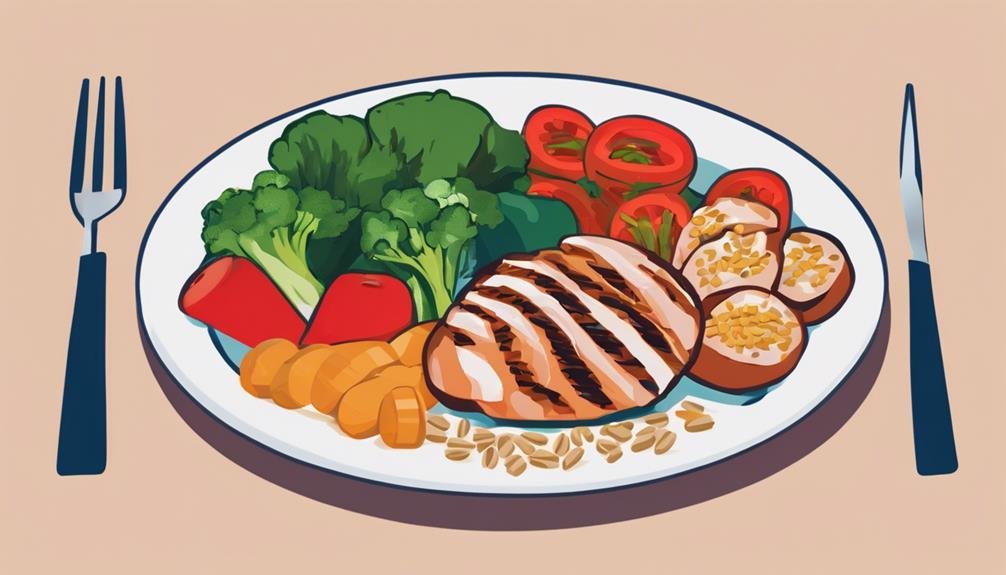
As you navigate through cancer treatment, focusing on balancing macronutrients in your diet is crucial for supporting your overall health and well-being. Macronutrients, which include carbohydrates, proteins, and fats, play essential roles in providing energy, building and repairing tissues, and supporting your immune system.
When following a Paleo diet, ensure you're getting a good balance of these macronutrients. Carbohydrates can be sourced from fruits, vegetables, and sweet potatoes, providing energy for your body.
Proteins from lean meats, fish, and nuts are vital for tissue repair and immune function.
Healthy fats from sources like avocados, olive oil, and nuts are important for cell structure and absorption of fat-soluble vitamins.
Adjusting to Paleo Lifestyle
Transitioning to a Paleo lifestyle can initially feel overwhelming, but with a gradual approach and a focus on whole, nutrient-dense foods, you can ease into this way of eating seamlessly. As you adjust to this new lifestyle, remember to:
- Start Slow: Don't pressure yourself to overhaul your diet overnight. Small changes can lead to lasting habits.
- Stay Hydrated: Water is essential for overall health and can help with the detoxification process.
- Embrace Healthy Fats: Include sources like avocados, nuts, and olive oil for satiety and nutrient absorption.
- Listen to Your Body: Pay attention to how different foods make you feel. Your body's feedback is valuable in tailoring your diet.
Incorporating Variety in Meals
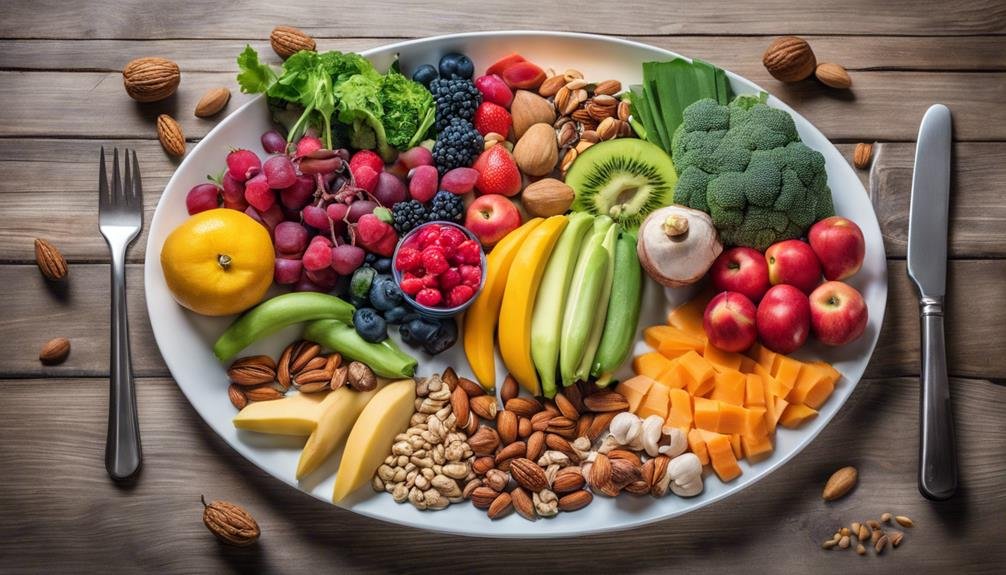
To bring excitement and balance to your Paleo journey, incorporating a diverse array of foods into your meals is crucial. Variety not only keeps your meals interesting but also ensures you receive a wide range of nutrients important for your health. Include a rainbow of fruits and vegetables in your daily meals to benefit from different vitamins, minerals, and antioxidants.
Experiment with different protein sources like grass-fed beef, free-range poultry, wild-caught fish, and plant-based options such as tofu or tempeh. Don't forget healthy fats like avocados, nuts, and seeds to support your overall well-being.
Herbs and spices can also add depth and flavor to your dishes while providing potential health benefits. Try incorporating turmeric, ginger, garlic, and cinnamon into your cooking.
When choosing carbohydrates, opt for a variety of whole grains like quinoa, brown rice, and sweet potatoes to maintain energy levels and provide fiber. By embracing variety in your Paleo meals, you can enjoy a well-rounded and nourishing diet that supports your journey towards better health.
Monitoring Health Outcomes
To maintain a proactive approach to your health journey while following a Paleo diet, monitoring your health outcomes becomes increasingly important. Keeping track of how your body responds to dietary changes can provide valuable insights into your overall well-being. Here are some key points to consider when monitoring your health outcomes:
- Regular Check-ups: Schedule routine visits with your healthcare team to assess any changes in your health status.
- Blood Work: Monitor blood markers such as cholesterol levels, inflammation markers, and nutrient levels to ensure optimal health.
- Symptom Tracking: Keep a journal to record any changes in symptoms or how you feel after making changes to your diet.
- Consult Professionals: Seek guidance from healthcare providers or nutrition experts to interpret the data and make informed decisions about your health.
Frequently Asked Questions
Can Cancer Patients on a Paleo Diet Consume Dairy Products?
Yes, cancer patients on a paleo diet can consume dairy products, but it's essential to choose high-quality, organic, and full-fat options. Dairy can provide valuable nutrients like calcium and vitamin D, but some individuals may be sensitive to lactose or casein.
Monitor how your body responds to dairy consumption, and consider consulting with a healthcare provider or a registered dietitian to ensure it aligns with your overall dietary needs and health goals.
Is It Safe for Cancer Patients to Follow a Strict Paleo Diet?
Following a strict paleo diet as a cancer patient can be challenging. It's crucial to ensure you're getting all the necessary nutrients for your body to fight the disease and maintain strength. Consult with your healthcare team before making significant dietary changes. They can provide guidance tailored to your specific needs and help you navigate potential risks or benefits associated with a strict paleo diet during cancer treatment.
How Can Cancer Patients Maintain Weight on a Paleo Diet?
To maintain weight on a paleo diet, cancer patients can focus on healthy fats like avocados and nuts, protein sources such as lean meats and fish, and complex carbohydrates like sweet potatoes and quinoa. Eating nutrient-dense foods and incorporating a variety of colorful fruits and vegetables can help ensure you're getting essential vitamins and minerals. Additionally, portion control and regular physical activity can support weight management while following a paleo lifestyle.
Are There Specific Supplements Recommended for Cancer Patients on Paleo?
You can benefit from specific supplements while on a paleo diet as a cancer patient.
Vitamin D, omega-3 fatty acids, and probiotics are often recommended for their potential health-promoting properties. These supplements may help support your immune system, reduce inflammation, and improve overall well-being.
However, it's important to consult with your healthcare provider before adding any new supplements to your regimen to ensure they're safe and appropriate for your individual needs.
Can Cancer Patients on Paleo Have Occasional Cheat Meals?
Yes, cancer patients on a paleo diet can have occasional cheat meals, but it's important to balance them with nutrient-dense foods. Opt for high-quality cheat meals to minimize inflammation and support your overall health. Remember, moderation is key.
Indulging occasionally can provide mental satisfaction, but prioritize whole foods for nourishment. Listen to your body and consult with your healthcare provider for personalized guidance on incorporating cheat meals into your paleo diet as a cancer patient.
Conclusion
As you navigate the path towards better health and well-being with the Paleo diet, remember to tread lightly and embrace the colorful journey ahead. Like a vibrant tapestry woven with nutrient-dense threads, your choices can paint a picture of strength and resilience. Stay connected with your healthcare team, listen to your body's cues, and savor the nourishing flavors that fuel your journey towards healing. Embrace the Paleo lifestyle with open arms and let its benefits shine brightly on your path to wellness.
